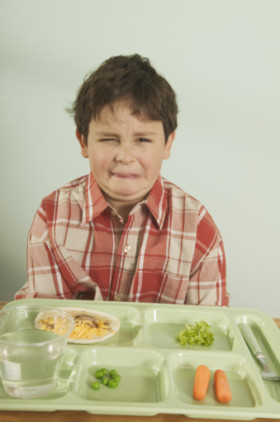
A nutritionist believes that putting a child on a diet or forcing him or her on to a tread-mill in a gym to lose weight is as bad as child abuse.
It is unfair and unhealthy to drastically limit your child’s intake to lose weight. It would not only delay or impair the child’s growth and development, but it could lead to lowered self-esteem and depression and put a lot of mental stress on obese children, she warns.
“Child obesity should be handled only under the guidance of a medical professional,” says Juliot Vinolia, dietician at iCare Clinics, Oasis Centre.
Obesity among children is very common and a big challenge today, but the approach to weight loss among children should be different to that of an adult, she says. “For children, it’s about making behavioural changes, not so much about putting restrictions on the diet. Parents who are overweight themselves fear that their children may also be at risk and put them on a low-carb diet or whatever diet they are on, and restrict some foods, which is wrong,” says Vinolia.
“The whole focus should be whether a child is malnourished, and being malnourished does not mean deficiency, it could mean over-nourished or under-nourished, and only then the nutritional status should be corrected,” she says.
To check if the child is overweight you have to first identify if the height and weight are correct for the child’s age and then watch out if there is a deficiency in micro-nutrients-- the vitamins and minerals.
When a child is mistakenly put on food restrictions such as less of macro-nutrients--carbohydrates, proteins and fats--then there are dangers of the child losing out on major nutrients. “That is the approach to tackle adult obesity (restricting macro-nutrients) and is wrong (way to handle child obesity),” says Vinolia.
Children have a higher metabolism than adults. When their food intake is restricted, the deficiency of vitamins and minerals interfere with their metabolism leading to an early onset of diabetes, insulin resistance and other cardio vascular diseases. Childhood obesity is the major risk factor for early adulthood morbidity and mortality, says the dietician.
She believes that only when a person turns 18 can he or she go on a diet. “It is an adult who can understand the behavioural changes and can monitor one’s own diet,” she says.
Putting a child or a teenager, specially girls, on a diet could lead to eating disorders. “That is another big challenge today.”
With Internet access so easy, teens are surfing and finding out about diets such as Yo-Yo Diets and putting themselves at risk. “These lead to eating disorders such as Anorexia (Nervosa), which is starving yourself, or Bullimia (Nervosa), where the girl tends to overeat and vomit it out or take laxatives.”
The reasons why girls go to such extreme measures is due to teen depression and the need to look slim and svelte. Boys also tend to have eating disorders but not as much as girls, according to Vinolia.
Girls tend to develop more fat tissue after menarche (the first menstrual cycle), and due to the hormonal changes in the body the protein requirements will decrease. The growth rate of the girls after 12 years will also be faster than boys. “Over-nourishing girls at an younger age and not feeding them enough vegetables, will make them overweight,” says the dietician.
“How many fat cells you have in your infancy decides whether you will become overweight in the future,” she says.
Vinolia advises that parents should monitor their children’s growth using a Growth Chart. If the child is found to be weighing far more than 75 per cent of the children in his age group, it is necessary to correct the child’s weight for height through behavioural changes, moderate physical activity and counseling by a medical professional.
“It is to be noted that the child should never be told that he or she is fat and needs to lose weight. It is more about encouraging the child to go for healthy food choices and outdoor games,” she says.
The dietician also recommends that an overweight and obese child should do at least 60 minutes of moderate intensity activity like playing basketball, swimming and other outdoor games.












